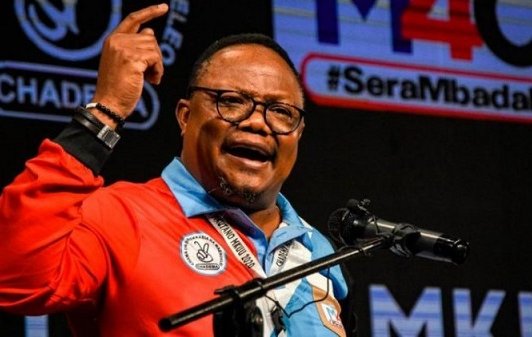As Tanzania heads toward its October 2025 general elections, concerns are mounting over an escalating crackdown on political opposition and civil liberties. What began as cautious optimism under President Samia Suluhu Hassan has shifted toward a deepening climate of repression that echoes, and in some ways surpasses, that of her late predecessor, John Pombe Magufuli.
President Hassan, who assumed office in 2021 following Magufuli’s death, initially promised reform, dialogue, and a softer approach to governance. Yet, as the election nears, her administration appears to be tightening its grip on power silencing critics, curbing opposition activity, and manipulating institutions to consolidate political control.
Political analysts now warn that Tanzania is sliding into what they call a new phase of authoritarianism, one that breaks long-standing democratic norms established since the country’s transition to multiparty politics in 1992.
At the centre of this political storm is Tundu Lissu, the opposition leader who survived an assassination attempt in 2017 and has since been detained on charges of treason a non-bailable offence that carries the death penalty. Another key opposition figure, Luhaga Mpina, has been disqualified from running in the presidential race following a last-minute intervention by the Registrar of Political Parties a move widely viewed as politically motivated.
While Tanzania has a long history of one-party dominance under Chama Cha Mapinduzi (CCM), observers note that Hassan’s administration has crossed unprecedented lines. “There is no competition worth the name,” wrote veteran columnist Jenerali Ulimwengu, lamenting what he called the closure of Tanzania’s political playing field.
The country’s semi-independent electoral commission, long accused of bias, has reinforced these fears by barring major opposition candidates even after court rulings reinstated them. Meanwhile, independent media outlets and social platforms such as X (formerly Twitter), Clubhouse, Telegram, and Tanzania’s own JamiiForums have been restricted or blocked altogether curtailing political discourse ahead of the vote.
This erosion of democratic space is compounded by rising reports of state-sponsored violence and abductions. Earlier this month, ruling party veteran-turned-critic Humphrey Polepole was abducted after publicly condemning the president, amid what police described as an ongoing investigation into “criminal speech.”
At political rallies, the contrast is striking. President Hassan commands large, well-orchestrated gatherings reminiscent of “a procedural coronation,” as political researcher Nicodemus Minde describes them. Meanwhile, opposition leader Lissu stands trial, representing himself and describing his prosecution as “a political persecution.”
For many Tanzanians, this dual reality captures a troubling transformation one where elections exist in form but not in substance. Analysts argue that this shift marks not just the return of authoritarianism but its evolution into a more calculated, institutionally embedded model.
International observers say global conditions have emboldened Hassan’s approach. With waning Western influence and the U.S. retreating from active democracy promotion under President Donald Trump’s second term, leaders across the developing world are testing the limits of global accountability.
“Tanzania’s democratic backslide is not happening in isolation,” notes one political analyst. “It reflects a broader global trend from Turkey to Mozambique where leaders are exploiting weakened international pressure to entrench power.”
As the October elections draw near, Tanzania faces a defining moment. Whether the country can reclaim its democratic promise or sinks deeper into authoritarian control may depend on how both domestic institutions and the international community respond in the months ahead.
For now, however, it appears that Tanzania has entered a new and unsettling chapter one defined by power without accountability, and elections without choice.
